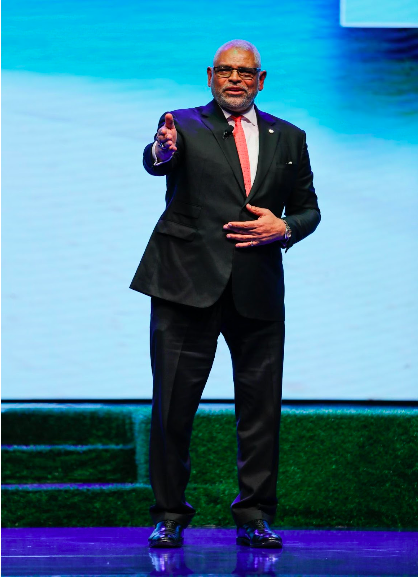Philippine tourism back on its feet, says World Travel and Tourism Council
After two years of a travel slump, the Philippines finally opens its arms—well, its 7,641 islands—to the world.
At the recently-held 21st Global Summit of the World Travel and Tourism Council (WTTC), leaders of the global tourism industry praised the Philippines’ successful hosting of the event as it closed with high hopes for an industry battered by two years of the pandemic.
The WTTC’s mission “is to maximize the inclusive and sustainable growth potential of the travel and tourism sector by partnering with governments, destinations, communities, and other stakeholders to drive economic development, create jobs, reduce poverty, security and understanding in (the) world.”
A green future
The summit, which gathered world leaders of the tourism industry, aims to align efforts to revive the tourism sector and transition to a safe, resilient and sustainable future. One speaker at the summit was Indonesian-Dutch activist Melati Wijsen, who founded Bye Bye Plastics at the age of 12 and was named one of the “world’s most influential teens” by Time magazine. Wijsen’s Bye Bye Plastics aims to empower youths around the world to put a stop to plastic bags. “Melati is an inspiration to us all,” said Julia Simpson, president and CEO of the WTTC. “A real changemaker, who from such a young age, has been instrumental in raising awareness of the damage caused by plastic and has inspired young people around the world to lead change.”

Julia Simpson, president and CEO of the WTTC, says that the success of the summit was “testament that the country’s tourism industry is well on its feet.”
Tourism Secretary Berna Romulo-Puyat echoes the sentiments of Wijsen. Citing the need for sustainable tourism, she said the summit also gave way to “passionate advocates for responsible tourism, and for a greener environment.”

Tourism Secretary Berna Romulo-Puyat at the closing ceremony of the 21st Global Summit of the World Travel and Tourism Council (WTTC).
“Our destinations must not be allowed to go back to the old unsustainable ways of the past. Instead, we must move forward guided by strategic and evidence-based planning and aimed towards building further resilience,” she added.
Showcasing the country’s beauty
At the summit, Simpson said, “I’m not often stumped for words, but I am now. Wow! What an amazing summit. We really have rediscovered travel.” She considered the “extraordinary Philippine welcome” her personal highlight of the two-day summit.
“That warmth, that passion, that generosity, that smile. I haven’t walked out one corridor without people saying to me ‘Good morning!’ It’s incredible,” she said after the closing ceremony.
In her closing speech, Simpson said the success of the summit was “testament that the country’s tourism industry is well on its feet.”
The summit gave the Philippines the opportunity to showcase “how beautiful the country is,” Tourism Secretary Berna Romulo-Puyat said on Friday.
She said the Philippines is now a top-of-mind destination for delegates, many of whom had decided to stay to savor the rest of the country where “we are setting an example of how to open safely.”

WTTC chair Arnold Donald
“This has been a wonderful global summit and, to echo your brand campaign, we certainly had lots of fun in the Philippines. This is an experience all the delegates of the summit can definitely attest to,” WTTC chair Arnold Donald said in his closing address.
Gloria Guevara, special advisor of Saudi Arabia’s Ministry of Tourism and former president and CEO of WTTC, said the Philippines “has exceeded all of our expectations. Thanks to the leadership of Secretary Bernadette Romulo-Puyat before and during the pandemic, the Philippines has been successfully repositioned as a top destination and she delivered an impactful summit. The Filipino hospitality has also made it memorable.”
It’s more fun—and open—in the Philippines
Puyat thanked the delegates and participants for the success of the summit and for their “outstanding commitment you have shown in support of the recovery and continued growth of the global travel and tourism industry.”
She said that as the pandemic forced the global tourism industry to raise its game and change the way it gets things done. “We have likewise put much effort into discerning the most effective combination between the enforcement of health and safety guidelines and personal convenience—the delicate balancing act of implementing measures to ensure everyone’s safety without placing unreasonable burdens on the traveling public.”
“Our shared hopes and dreams for the future are reflected in the policies we have developed, and the measures we have put in place to plan and realize this sector’s full and complete recovery,” Puyat said.
To watch the summit, check out https://youtu.be/0W3UZG2WGRI (Day 1) and https://youtu.be/OaN–aSNnMU (Day 2).
ADVT